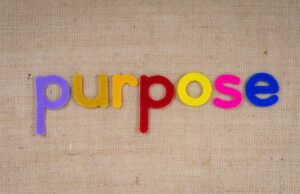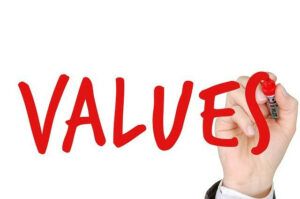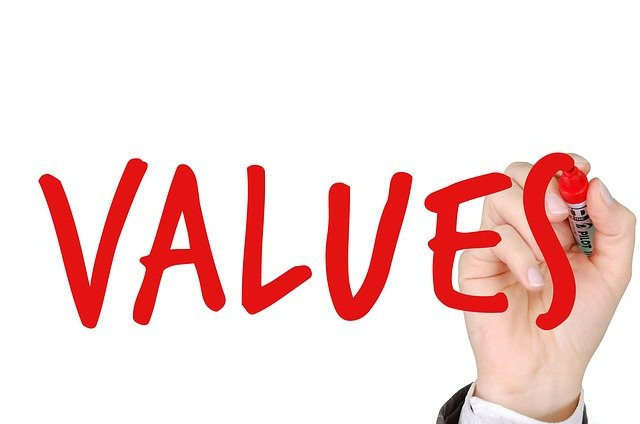==================
Affiliate Statement and a Caveat
First off, a little caveat: within my articles you will find affiliate links, meaning if you buy them, I get a small commission. Your cost is not affected. In addition, I am an Amazon Associate and I earn from qualifying purchases on Amazon.
And yes, if I say that I recommend a product here, it means I truly believe it is a good product. I refuse to recommend any product that I have not researched and believe to be a good value.
Even better, I provide you with a very clear picture of the product, it’s use, and the probable value.
Earning your trust is important to me. I run this website myself and the commissions and donations help support the site.
Sound reasonable and fair enough? Let’s continue to the article.
==================
Finding Your Purpose, Defining You
1. Finding your purpose, calling, and mission
 Finding your purpose may elude some people for most of their lives.
Finding your purpose may elude some people for most of their lives.
Yes, many people seem to wander through life, almost aimlessly. They sometimes find it difficult to stay with one group of friends or one job. Hobbies, if they have, don’t seem to stick either.
Other people appear to know from the start what their mission in life is. They have a path chosen and stay the course, deviating only when necessary. While they may change jobs, they do so with a definite purpose.
Most of us fall somewhere between, of course. But finding your calling in life helps set the groundwork, the foundation, for everything in your life. What you do, where you go, the friends you keep all balance on that mission that drives you.
You might even choose to craft an actual personal mission statement to help keep you focused. Post it where you see it every day.
Should you ever change it? Of course! But only if your mission changes. One example might be of a person with a mission to build a business to pass on to his children. And then, one day, he finds himself suddenly drawn to helping the homeless in his community. For whatever reason, his mission in life needs to refocus.
2. Find and utilize your priorities
Establishing your priorities in life helps you define the daily ones, too. This is quite important when finding your purpose.
The medical field knows the term triage quite well. Often, the ER staff finds themselves using it to establish the order that patients receive care.
Likewise, we need to prioritize our lives from daily to life-long. Our mission statement sets the stage for our priorities. But then we need to establish and maintain them, just as the triage nurses and doctors do in the ER intake.
Doing the most important tasks first ensures they get done. In the event that life throws a few hurdles your way, you know that you have accomplished the priorities, at the very least.
Often, we leave the most challenging tasks for last, preferring to do what’s easier and possibly even more enjoyable. That usually proves to be a mistake.
Watch a child eat his dinner. Most choose their favorite foods first and leave the least liked one for last, seeming to hope it disappears before he gets to it. Some learn along the way to eat the least favorite first, getting past that task to then enjoy their favorites.
Many people choose their tasks in much the same way. But putting off that dreaded phone call til the end of the day doesn’t make it disappear. Instead, it continues to hang over you like a dark cloud over you the entire day. Instead, if you make the call early, it’s out of the way and you have the more enjoyable tasks to brighten the rest of your day.
A quote by Mark Twain summed this up in his quote about “Eating the Frog.” You can read more about setting and following your priorities in Completing Your MIT’s.
Get control of your daily life by prioritizing each day. You may find it easier to sail through the big, important things as you move forward.
3. Your values define you and your life
 Having values that support your mission helps define you to yourself and to others. We often think of values as quality traits such as honesty, trustworthiness, and integrity. But they may not always be what the world considers good values. Even a thief has values, though certainly not the same as those most perceive as good qualities. Wikipedia offers a detailed description of values, also known as ethics.
Having values that support your mission helps define you to yourself and to others. We often think of values as quality traits such as honesty, trustworthiness, and integrity. But they may not always be what the world considers good values. Even a thief has values, though certainly not the same as those most perceive as good qualities. Wikipedia offers a detailed description of values, also known as ethics.
Understanding your values and refusing to compromise on them helps guide you through your decisions. For instance, if honesty is one of your values, you will refuse to lie, even when it might be an easier choice than the truth. If time with family is one of your values, you carve that time out as a priority.
As you work at finding your purpose, consider writing your values and keeping your list with you. Sometimes, when we are faced with a tough decision, it helps to know we can read through our value list. I’ve seen some businesses post their values so their customers can see them, too. Letting others know your values helps affirm them to yourself, too.
4. Focus on your mission, priorities, values, and tasks
Photographers know the importance of focusing when shooting pictures. In many ways, life is like a camera.
Indeed, focusing on the task at hand allows you to make a plan and follow it to complete the task. The late Tom Short once wrote:
“Evaluate, Investigate, Create, Activate. Now Your Life will be Great.” Tom Short.
And that philosophy certainly does help us reach our target for each task. But it also helps for our mission, our priorities, and our values. In fact, they all work together.
For each part of life, knowing your direction and focusing on it enables you to complete it. Yes, it’s as simple as that.
5. Use your sense of humor
Sometimes, when life throws those hurdles in your path, your sense of humor needs to step up and bail you out. Finding the humor in a situation can help you deal with the problems in life. In fact, a little laughter helps lighten stress and pain, too.
When our children were small, I’d lighten their falls with a comment such as, “Is the floor ok?” Yes, at first, they wondered if I was crazy. But soon they caught on and learned to laugh, almost spontaneously. Now, they will actually jump in ahead of me with “Don’t worry, Mom, the floor is fine!” and we laugh together.
Of course, if the child was truly hurt, I would not just laugh. But most of the time life’s little falls just need a sense of humor to move past them. Think of a time when you made a mistake or had a problem. Would a little laughter have softened the stress or pain? Probably.
6. Know and use basic etiquette
Even if your family doesn’t practice formal manners at the dinner table, practicing the basics on a regular basis remains a vital skill. Knowing basic social skills and using them routinely ensures you don’t offend other people or cause hurt feelings.
 Simple things like being polite, saying please and thank you, and yes, holding the door open for the next person make our society more pleasant. If you aren’t sure what basic etiquette rules are, you might read Basic Etiquette for personal rules. Business rules include the personal ones, with a few additions. You can find one list at this site.
Simple things like being polite, saying please and thank you, and yes, holding the door open for the next person make our society more pleasant. If you aren’t sure what basic etiquette rules are, you might read Basic Etiquette for personal rules. Business rules include the personal ones, with a few additions. You can find one list at this site.
7. Civics, politics, voting
Most consider understanding our political system and taking part in the voting process to be a part of our civic duty. Finding ways to voice your opinion, including by voting, helps you direct change. While some feel that their vote might not really matter, collectively they certainly add up and in some cases elections have been decided by a very few votes.
Voting is only one means, of course. You might choose to write to your government officials or begin a petition drive.
People immigrating to the United States must learn about the government process, too. In fact, some consider the test to be quite intensive.
Read More…
1. Life Skills 1
2. Life Skills 2
3. Life Skills 3
4. Life Skills 4
Join the Family Life Focus Newsletter to read our future posts, too!


